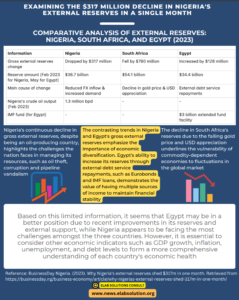The Iranian Revolutionary Guard Corps announced on Wednesday the death of Colonel Daoud Jafari, a senior adviser to the Iranian Air Force in Syria. According to Iranian media, the Israelis killed him in an explosion near Damascus. The assassination suggests that Israel’s elaborate plan to counter any Iranian military presence in Syria is an attempt to reduce Iran’s military capabilities, which poses a threat to Israel’s national security. Israel appears to be expanding its tactics by targeting
Iranian individuals and airstrikes on Iranian militias in Syria.
The assassination of Colonel Jafari was carefully planned and carried out by installing an explosive in his vehicle. This operation required a new type of logistical preparation and intelligence on the ground. It is worth noting that the murder took place near the village. from Sayyidah Zaynab (Sitt Zaynab), south of the capital Damascus. This city was turned into the headquarters of the Iranian militias during the Syrian war.
Despite a significant military presence, Israel managed to infiltrate Iran’s security to carry out the assassination. What happened, however, raises questions. How was Israel able to set up intelligence “sleeping cells” in the most heavily fortified areas it commands? Hub for Iranian militants and their non-Syrian loyalists? Also, has the Syrian regime become so weak that it cannot protect its Iranian allies on its own soil? This inability to respond to Israeli military operations in ‘
has diminished support for the Assad regime in the eyes of its remaining Syrian supporters.
Israel has carried out hundreds of airstrikes against Iranian militias in Syria in recent years, particularly against the Lebanese Hezbollah, believed to be Tehran’s arm in the region. It seems that the killing of the Iranian general in Syria is a continuation of the airstrike. Operations against the Iranian military headquarters in Syria, but in a more complex and comprehensive way. Israel has previously attacked people linked to Iran, but with airstrikes, not explosives on the ground. On March 19, 2015, Israel orchestrated the assassination of Samir Kuntar, a senior Hezbollah figure who was killed in Damascus after Israeli warplanes bombed an apartment building where Kuntar was staying at the time. Another example is the assassination of Jihad Imad Mughniyeh, leader of the Lebanese Hezbollah and son of Imad Mughniyeh, one of the party’s top military commanders.
He was killed in an Israeli airstrike on his convoy in Quneitra, southwestern Syria, on January 18, 2018. It is clear that the assassination of Colonel Jafari is inseparable from recent Israeli operations on Iranian soil. On June 12, Iranian media close to the Revolutionary Guard reported that Ali Kamani and Mohammed Abdous, two members of the Revolutionary Guard’s airspace unit, were killed in the cities of Khamen and Semnan.
Kamani and Abdous had worked on weapons development and production for the Lebanese Hezbollah. Iran blamed Israel for both attacks.
Another case is the assassination of Ayoub Waitari, who specializes in developing missiles and drones for the Revolutionary Guard. According to Iranian sources, he died of intentional food poisoning. A similar death from food poisoning was the murder of Kamran Aqa. Mollaei, was an Iranian geologist who worked for the Iranian regime. Iran accused Israel of orchestrating the poisoning in both cases. Iran appears to be weaker than it claims as Tehran has so far been unable to respond to the
Israeli military operations against it.
The main reason behind the Israeli attacks on Iranian units in Syria is a change in the nature of the Iranian presence in Syria from a purported mission to rescue the Assad regime to an attempt to turn Syria into a military platform capable of Land that could threaten Israel’s security. and to put pressure on Western countries. In recent years, Iran has worked steadily to build a military infrastructure in Syria that includes permanent bases and small airfields for the Revolutionary Guards. In addition, it has established
facilities for its military industries in Syria to prevent Israeli shelling of supply convoys from Tehran to Damascus. Despite Iran’s efforts, Israeli airstrikes continue to this day on a regular basis. The war in Ukraine also significantly influenced the decisions made in Iran and Israel.
Iran feared Russia’s gradual retreat from Syria to Ukraine, prompting it to increase its military presence. On the other hand, Israel began to fear losing the green light from Russia, which had allowed it to attack military points on Syrian territory. From the start of the Ukraine war, however, it was clear that Israel intended to continue its airstrikes while Iran was unable to exploit the growing Russian vacuum in Syria. Syria is at the scene of an undeclared war between the two countries. As long as Iranian militias remain on Syrian soil, there will be no stability in Syria or in the wider region.






